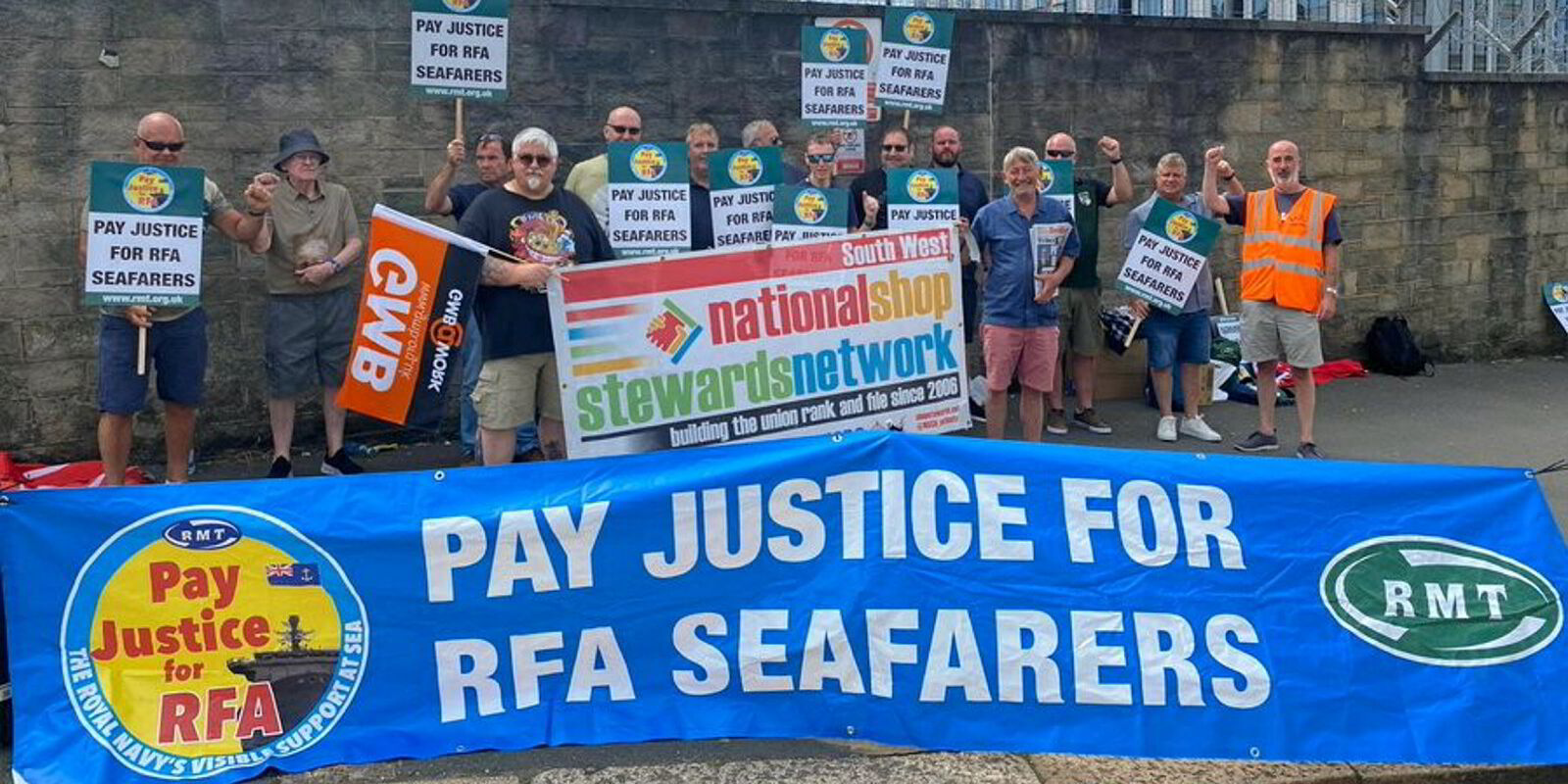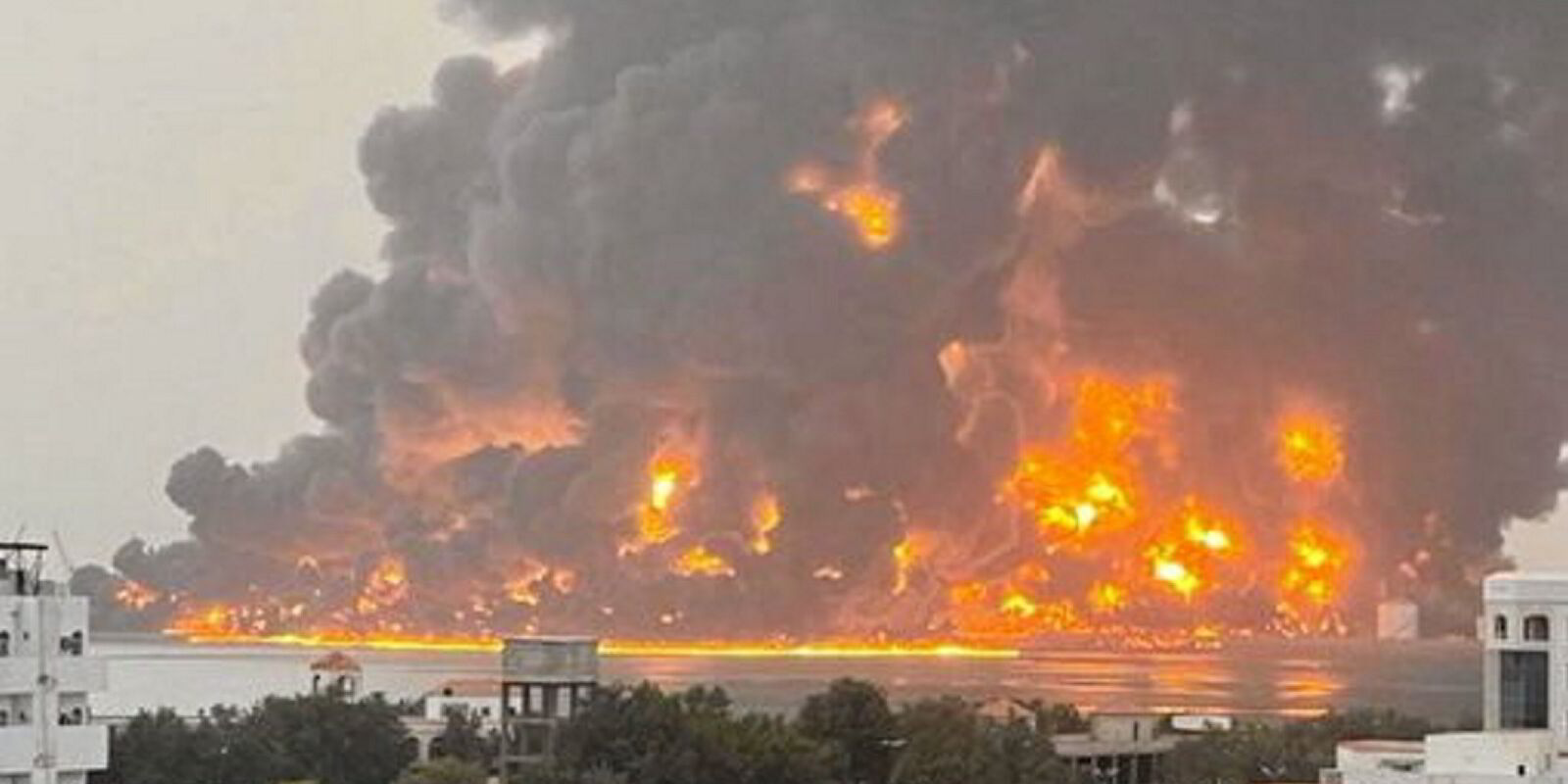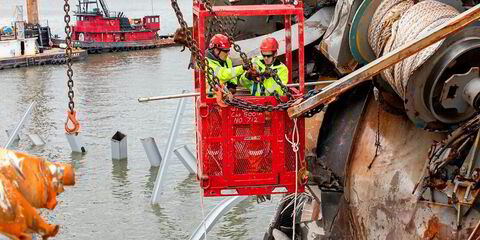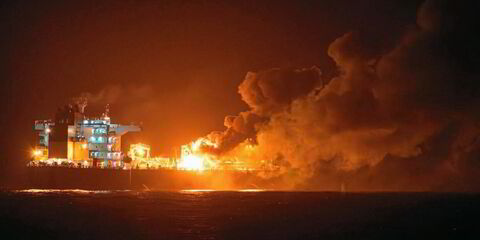Officers at the UK’s Royal Fleet Auxiliary (RFA) represented by trade union Nautilus International will strike for the first time in the history of the service.
The strike, set for 15 August, follows a period of continuous action short of striking since 1 June.
RFA officers have taken a real-term pay cut of more than 30% since 2010, with a below-inflation pay rise of 4.5% imposed last November, according to Nautilus.
Nautilus members at the RFA voted overwhelmingly for industrial action: 85% voted for action short of strike and 79% voted to strike.
Martyn Gray, Nautilus director of organising, said: “Strike action is always a last resort for us, but there is a palpable strength of feeling among our members at the RFA.
“Over 14 years of cuts and pay restraint, despite the RFA undertaking increasingly complex operations, have taken their toll.”
Gray said that despite early engagement with the Ministry of Defence after last month’s general election, members have yet to receive a new and improved pay offer.
“This is unacceptable and leaves us no option but to escalate. Our members are overworked, underpaid and undervalued,” he said.
“The fact this is the first time RFA officers will take strike action in history is a scathing indictment on the state of the service, which is experiencing a recruitment and retention crisis and rock-bottom morale across the workforce.”
Gray stressed that in order to avoid disruption at the RFA, officers need a pay offer that reflects the high rate of inflation and a pathway to pay restoration.
He also confirmed that they remain committed to working with the new government to achieve that.
RMT stoppage
Members of the National Union of Rail, Maritime & Transport Workers (RMT) within the RFA took strike action across British and international waters on August 1.
RMT general secretary Mick Lynch said: “This latest strike is about more than fair pay; it’s about gaining the respect and recognition that seafarers deserve for their vital contributions worldwide.
“We urge all members to stay strong and united in their fight for a just pay rise and better working conditions, which they have rightfully earned.”
Lynch insisted that RFA management and the new government need to resolve the dispute quickly and acknowledge the “deep-seated” anger and frustration of RMT members.
The dispute began last autumn after Nautilus, which represents RFA officers, and the RMT, which represents employees in the deck, engine, communications and catering areas (ie, ratings), rejected government offers for pay increases.
RFA members are civilian employees who operate the supply and logistics ships for the Royal Navy. Formed in 1905, the fleet consists of 13 vessels, including tankers and supply ships.
About 1,750 individuals are classed as civil servants in the RFA, according to the RMT. They work four-month tours at sea.
Nautilus told TradeWinds: “As with most unions, we don’t release our membership figures publicly, but I can tell you that the majority of officers in the RFA are members of Nautilus.” (Copyright)





